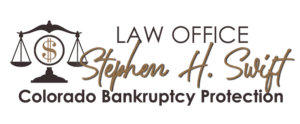
n this second-half of a two-part series on dealing with personal debt, Colorado Springs debt-relief lawyers examine the federal guidelines for what constitutes debt collection “harassment” and offer tips for Colorado consumers dealing with seemingly unrelenting creditor calls.
According to the, a debt collector may not “harass, oppress, or abuse any person in connection with the collection of a debt”. Among other things, this means in an effort to collect a debt, a creditor may not:
~ threaten violence,
~ use profane or obscene language,
~ publish the names of consumers who have unpaid debts (except to a credit reporting agency),
~ use false, deceptive, or misleading information in an attempt to collect a debt, or
~ threaten action that is either not legally permitted or not intended to be pursued.
As reported by Investopedia, abusive debt collectors capitalize on consumer fear and ignorance, banking on the notion that the average debt holder doesn’t realize they have considerable rights when it comes to how debts can be collected. With that in mind, the Federal Trade Commission arms consumers with one tool that can stop the constant calling — the certified letter.
According to the FTC, if a consumer has communicated by phone with a debt collector and now wishes to cease contact, sending a ‘cease-and-desist’ letter – via certified mail, return receipt requested – is the first step to stopping contact.
Upon receipt, the FTC reports that a debt collector can only continue contact for two reasons:
~ to advise a consumer there will be no further contact, and,
~ to advise a consumer of creditor plans to take legal action.
While a consumer can still be sued for the balance of a debt, this step should at least stop contact.
For many families seeking Colorado debt relief, stopping harassing creditor calls is the first step on a path back to personal financial security. If you or someone you know is feeling overwhelmed by creditor calls, speaking with an experienced Colorado bankruptcy attorney can help you achieve debt relief.
For a free consultation, call (719) 520-0164.







